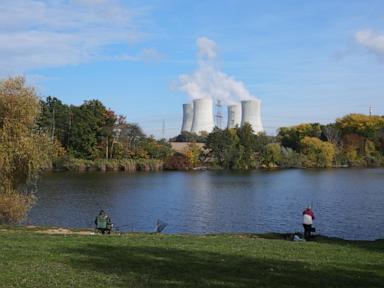Czech Republic Advances $19 Billion Nuclear Expansion Project

The Czech Republic is set to embark on an ambitious expansion of its nuclear energy capabilities with a planned investment of $19 billion. This project, centered around the Dukovany Nuclear Plant, aims to double the country’s nuclear output and reduce its reliance on fossil fuels. Mobile drilling rigs are currently conducting geological surveys at the site, digging up to 140 meters below ground to ensure its suitability for the new reactors.
The expansion will include the construction of two new reactors, each with an output exceeding 1,000 megawatts. KHNP, South Korea’s state-owned nuclear power company, has secured the contract over its competitor, EDF of France. The new reactors are expected to become operational in the second half of the 2030s and will complement the existing four reactors at Dukovany, which were commissioned in the 1980s.
In addition to the Dukovany expansion, the Czech government has an option to add two more reactors at the Temelín Nuclear Power Plant, which currently houses two 1,000-megawatt reactors. The long-term vision for nuclear energy in the country also includes plans for small modular reactors, which are gaining traction globally as a flexible energy solution.
According to Petr Závodský, chief executive of the Dukovany project, nuclear energy is projected to generate between 50% and 60% of the Czech Republic’s electricity by 2050, potentially exceeding that figure. The need for this expansion stems from the country’s goals to transition away from fossil fuels, ensure stable energy supplies, and meet stringent emission reduction targets. Závodský noted the anticipated rise in electricity demand driven by data centers and electric vehicles as crucial factors in this decision.
The Czech Republic’s commitment to nuclear energy comes at a time of rising energy demand and increasing urgency to address carbon emissions. Nuclear power, while producing waste, does not emit greenhouse gases like carbon dioxide, a leading contributor to climate change. The European Union has recognized nuclear energy’s role in achieving environmental sustainability by including it in its classification system for sustainable economic activities. This recognition has opened avenues for financing projects like the Dukovany expansion.
Countries such as Slovakia, Hungary, and France have similarly relied on nuclear power, and recent shifts in energy policy across Europe are seeing nations reconsider their stance on nuclear. For instance, Belgium and Sweden have reversed plans to phase out nuclear energy, while Poland is set to join a group of EU nations that embrace nuclear technology following a deal with Westinghouse to build three reactors.
The Czech power company CEZ, in which the government holds a 70% stake, has partnered with Britain’s Rolls-Royce SMR to develop and deploy small modular reactors. The financing structure for the Dukovany project includes the government acquiring an 80% stake in the new plant and securing a loan to be repaid by CEZ over 30 years. CEZ will also receive a guaranteed income from electricity production for 40 years, ensuring financial stability for the project.
Approval from the EU is anticipated, as the bloc aims to achieve climate neutrality by 2050. Závodský emphasized the necessity for new nuclear units, stating, “Today, we get around 40% of our electricity from nuclear, but we also derive another 40% from coal. It is clear we have to replace coal.”
Despite public support for nuclear energy, concerns persist regarding financing and safety. In 2014, CEZ canceled a tender for two reactors at the existing Temelín plant due to the lack of government financial guarantees. Security issues following Russia’s invasion of Ukraine led to the exclusion of Russia’s Rosatom and China’s CNG from the Dukovany tender.
CEZ has also signed agreements with Westinghouse and Framatome for the supply of nuclear fuel, reducing the country’s previous dependence on Russian sources. The contract with KHNP guarantees fuel supplies for the next 10 years.
While the public largely supports nuclear energy, opposition remains. Environmental groups like Friends of the Earth argue that the costs are too high and that investments could be better allocated to other sectors. The Czech Republic also faces challenges in managing spent nuclear fuel, as there is no permanent storage solution currently in place.
The Dukovany and Temelín plants are located near the Austrian border, a country that has remained skeptical about nuclear energy since it abandoned it following the 1986 Chernobyl disaster. In 2000, tensions over the Temelín plant resulted in a political crisis, leading to blocked border crossings for weeks. Austria continues to oppose nuclear energy, and its Parliament has already rejected the Czech Republic’s plans for small modular reactors.
As the Czech Republic positions itself for a significant increase in nuclear capacity, the outcomes of this ambitious expansion will be closely watched, both domestically and across Europe.






